- Contents
- Reliability of electricity supply
- Power outages
- How long do these power outages last?
- Effects of power outages on household activities.
- Quality of electricity services provided by the Electricity Company of Ghana (ECG).
- Affordability of electricity tariffs in Ghana
- Overall economic situation
- The Government?
- Methodology/About this Survey
Ghana, a nation on the West African coast, has been grappling with an electricity crisis for years. This crisis has had significant socio-economic impacts, affecting industries, businesses, and households alike.
In April 2024, GeoPoll conducted a countrywide survey of 405 randomly selected Ghanaians to better understand the electricity crisis in Ghana.
This report provides an in-depth analysis of the Electricity crisis in Ghana including:
- Reliability of electricity supply.
- How often do you experience power outages.
- Effects of power outages on household activities.
- Quality of electricity services provided by the Electricity Company of Ghana (ECG).
- Expenses due to the electricity crisis.
- Affordability of electricity tariffs.
- Overall economic situation.
Reliability of electricity supply
In the survey, we sought to find out, how would Ghanaians rate the reliability of electricity supply in their area on a scale of 1 to 5, where 1 represents very unreliable and 5 signifies very reliable. The results indicate that a significant portion of respondents expressed dissatisfaction with the reliability of electricity supply. Specifically, 34.76% rated it as unreliable, while 29.52% remained neutral. A notable 16.67% of respondents rated it as very unreliable.
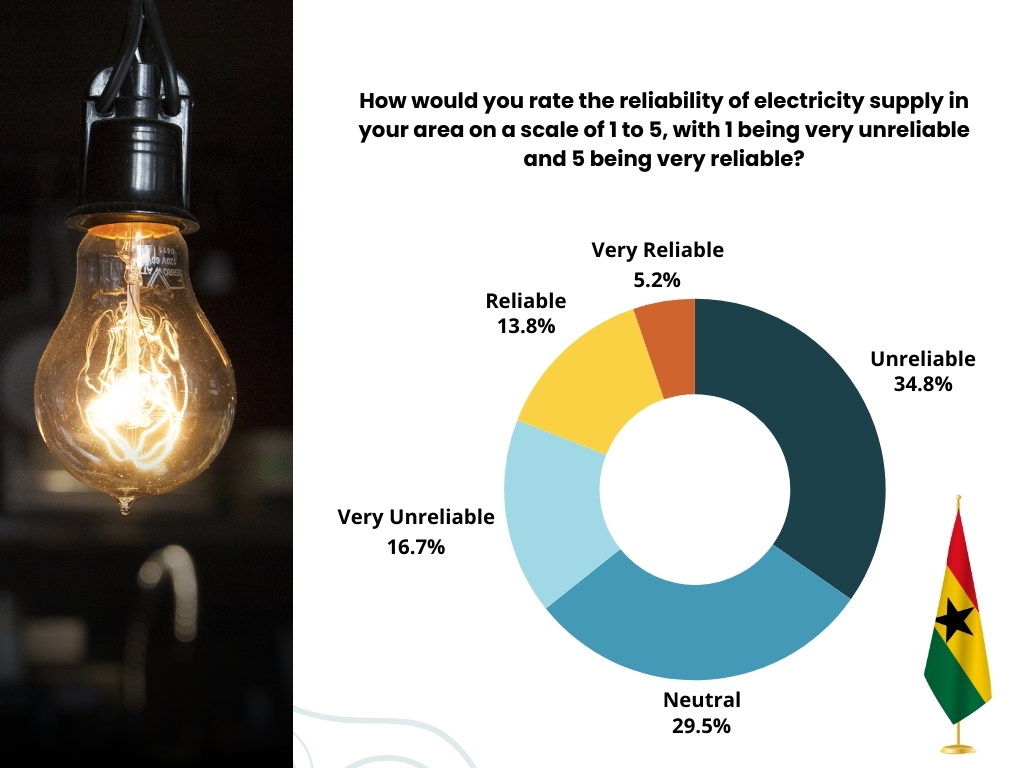
Power outages
For many years, Ghana has struggled with a problem of unstable electricity supply. In 2013, people came up with the word “dumsor” to describe this situation. It means the electricity goes off and on frequently. This issue has caused protests by people who are unhappy with the situation.
When asked about the frequency of power outages in their area, participants gave varying responses. Of these, 38.90% reported experiencing power outages sometimes (1-3 times a week), while 24.82% indicated experiencing them often (4-6 times a week). Seventeen percent stated that they rarely experience power outages (less than once a week).
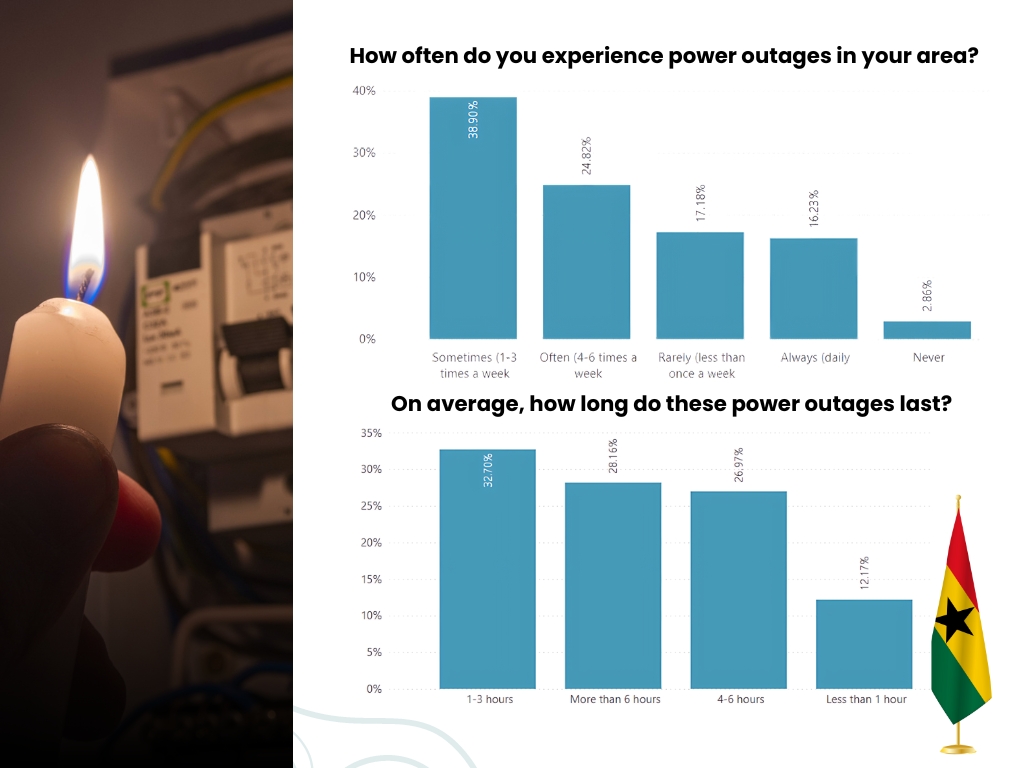
How long do these power outages last?
During the power outages, 32.70% of the respondents reported that they usually last for 1-3 hours. Additionally, 28.16% of the participants stated that the outages last over 6 hours, while 26.97% mentioned that they typically endure for 4-6 hours.
Effects of power outages on household activities.
The power cuts have really affected what households can do. Almost 30% of people said they couldn’t use their heating or cooling when the power was out. About 20% mentioned that they couldn’t use medical devices that need electricity. Another 20% talked about how the water supply was affected.
Quality of electricity services provided by the Electricity Company of Ghana (ECG).
The study revealed that customers are not happy with the quality of services provided by the energy company. A large portion, 37.47%, expressed dissatisfaction, while 25.30% remained neutral, and 18.38% were very dissatisfied. However, a smaller proportion, approximately 18%, reported being satisfied with ECG’s services.
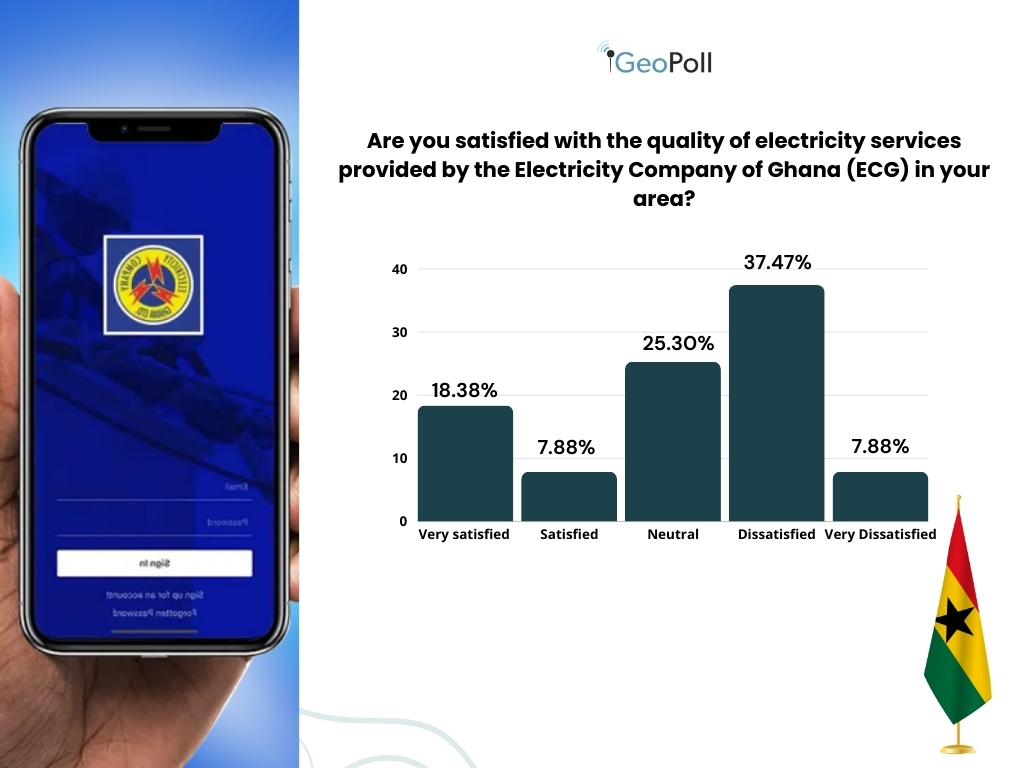
Affordability of electricity tariffs in Ghana
Last year, Ghana raised the average end-user tariff for electricity by 18.36% for the second quarter of 2023, adding on to an almost 30% increase in the first quarter.
From the survey, a significant majority, 45.45% of respondents, consider the electricity rates expensive. Additionally, 22.49% expressed a neutral opinion, while 18.42% believed the rates were very expensive.
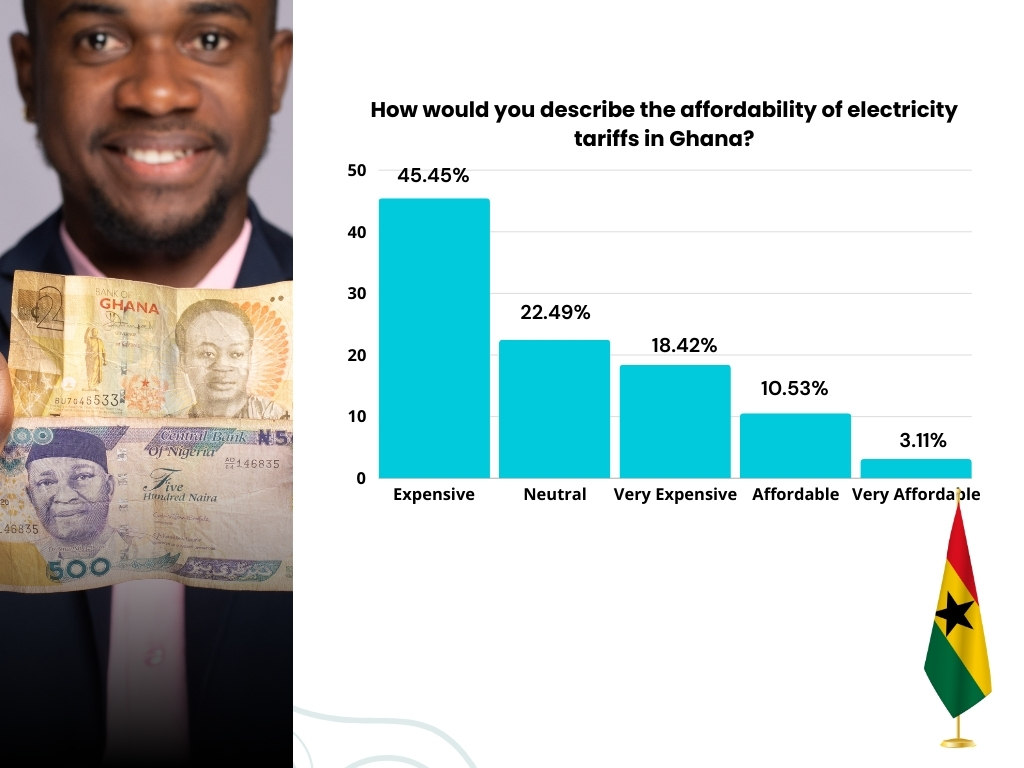
Overall economic situation
According to Nairametrics the electricity tariff increase will directly impact consumers and businesses in Ghana. Higher electricity costs will likely lead to increased operating expenses for businesses, potentially affecting their profitability and ability to expand. The study shows that 77.27% believe the electricity crisis has affected the overall economic situation in your community.
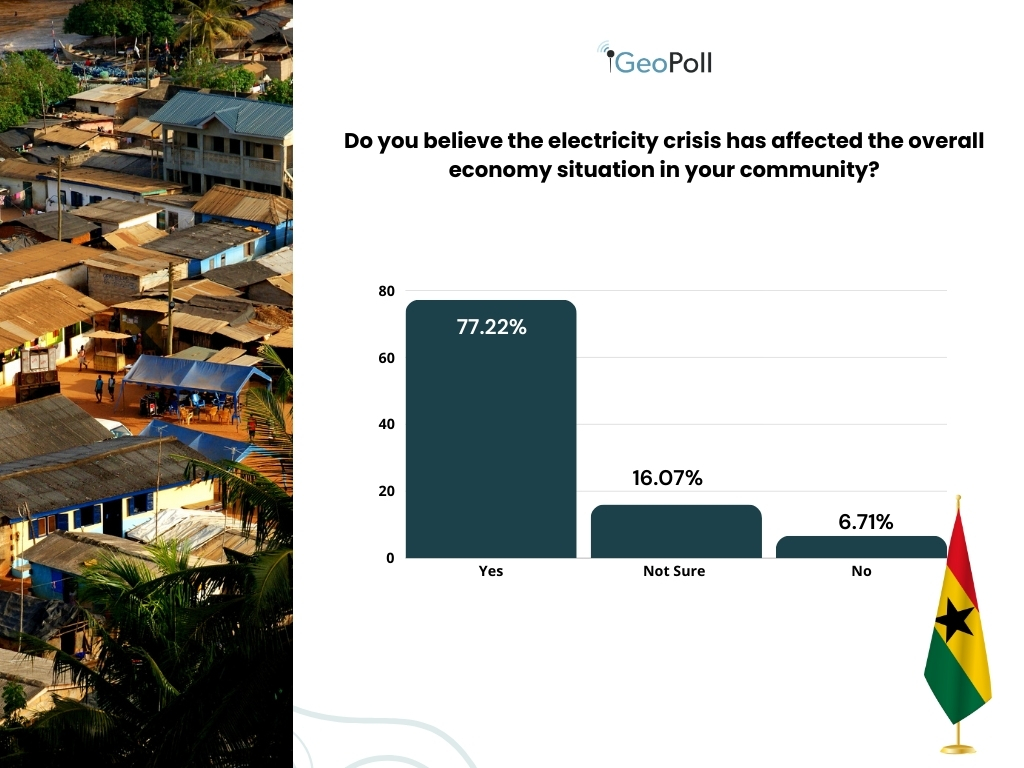
The Government?
The survey also aimed to gauge respondents’ opinions on the government’s response to the electricity crisis. We found that 27.87% of respondents perceive the government’s involvement as very ineffective. Additionally, 25.66% believe the government is neither effective nor ineffective. Moreover, 19.18% think the government is somewhat effective in handling the crisis.
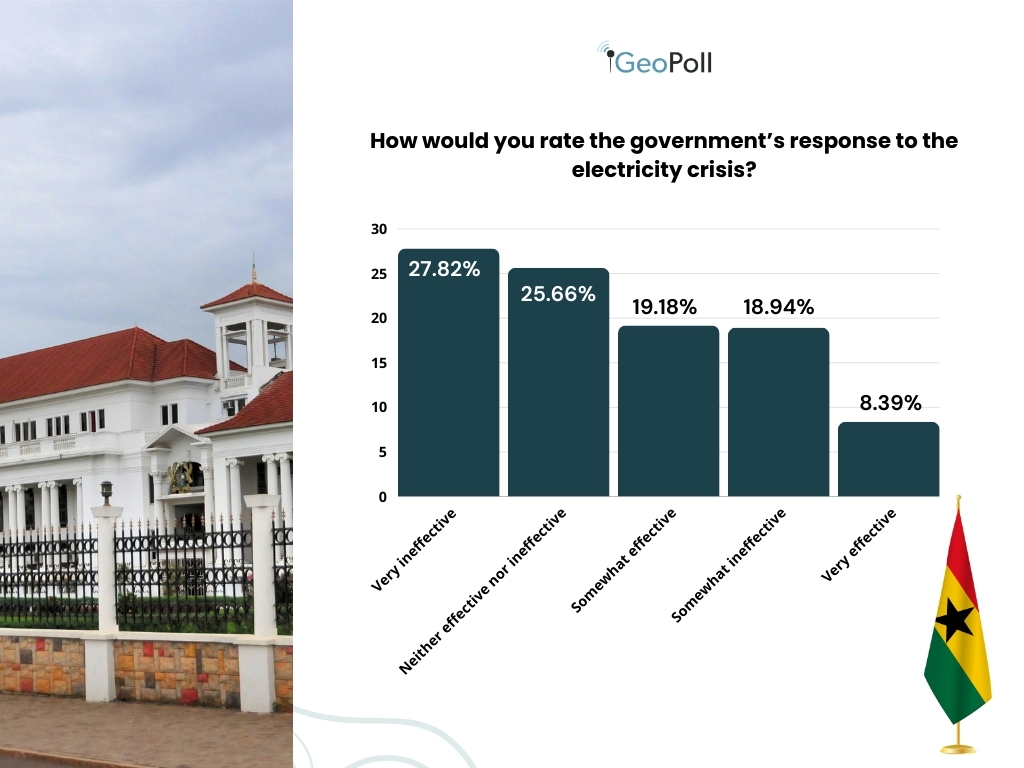
Methodology/About this Survey
This dip stick survey was run via the GeoPoll mobile application in April 2024 in Ghana. The sample size ws 405, composed of random app users between 18 and 60. Since the survey was randomly distributed, the results are slightly skewed towards younger respondents.
Please get in touch with us to get more details about exclusive GeoPoll surveys, conduct a scientific study of dating apps, or other topics in Africa, Asia, and Latin America.
